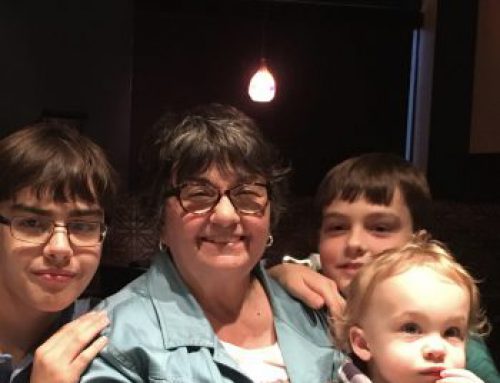It has been almost a year since my friends and I turned 50 and I am still trying to convince most of them to get their screening colonoscopies.
 Why, might you ask, am I a colonoscopy advocate? Besides being passionate about disease prevention, I have Crohn’s disease (a chronic inflammatory condition of the gastrointestinal tract) and have been getting colonoscopies every 2-3 years since I was 30!
Why, might you ask, am I a colonoscopy advocate? Besides being passionate about disease prevention, I have Crohn’s disease (a chronic inflammatory condition of the gastrointestinal tract) and have been getting colonoscopies every 2-3 years since I was 30! According to the American Cancer Society, regular colorectal cancer screening – the process of looking for cancer or pre-cancer in people who are not showing symptoms of disease – is one of the most powerful weapons for preventing colorectal cancer. After the first abnormal cells begin to grow into polyps, it typically takes between 10 and 15 more years for them to develop into cancer. Regular screening can, in many cases, prevent colorectal cancer because most polyps can be found and removed before they turn into cancer. Regular screening can also detect colorectal cancer when it is in the early stages and highly curable.
People who do not have any identifiable risk factors for colorectal cancer besides age, should begin getting screened at age 50. Those who have a family history or other risk factors for colorectal polyps or cancer, should talk to their doctor about starting screening at a younger age, about getting screened more frequently, and about which screening tests are best for them.
Since the mid-1980s, the colon cancer death rate has been dropping partly as a result of increased awareness and screening. Screening can find polyps and cancer in the earlier stages, making it easiest to treat. There are currently more than one million colon cancer survivors in the US.
While screening is the most important step you can take to prevent colon cancer, it is not the only one. You can do additional things to keep healthy:
- Exercise daily
- Know your family history
- Eat a healthy and balanced diet
- Avoid smoking
The American Cancer Society also recommends doing the following to possibly reduce your risk of colorectal cancer:
- Increase the intensity and amount of your physical activity
- Limit your intake of red and processed meats
- Get the recommended levels of calcium and vitamin D
- Eat more vegetables and fruits
- Avoid obesity and weight gain around the midsection
- Avoid excess alcohol
I am sure that you have already heard, and I agree, that most unpleasant part of the colonoscopy is the prep. This involves a liquid diet and drinking a lot of a salty liquid laxative the day before the procedure. The rest is easy!
A colonoscopy typically takes 30 to 60 minutes. Before the exam, an intravenous (IV) needle is put into a vein in your arm, typically to sedate you during the procedure. I have always been asleep during the exams and have never felt a thing.
During the colonoscopy, the doctor might remove polyps and send them to a lab for testing. Colon polyps are common in adults and most are harmless. However, most colon cancer begins as a polyp, so removing polyps early is an effective way to prevent cancer. Sometimes, the doctor may also take a biopsy. Biopsies and the removal of polyps are not usually felt by the patient.
After the colonoscopy, a friend or family member will need to drive you home…and if you’re lucky like I always am…take you to your favorite restaurant! Hopefully you will not need another colonoscopy for 10 years!
Please don’t put off getting a colonoscopy any longer. To read more about colonoscopies, go here to download a copy of Colonoscopy for Dummies.






Leave A Comment
You must be logged in to post a comment.